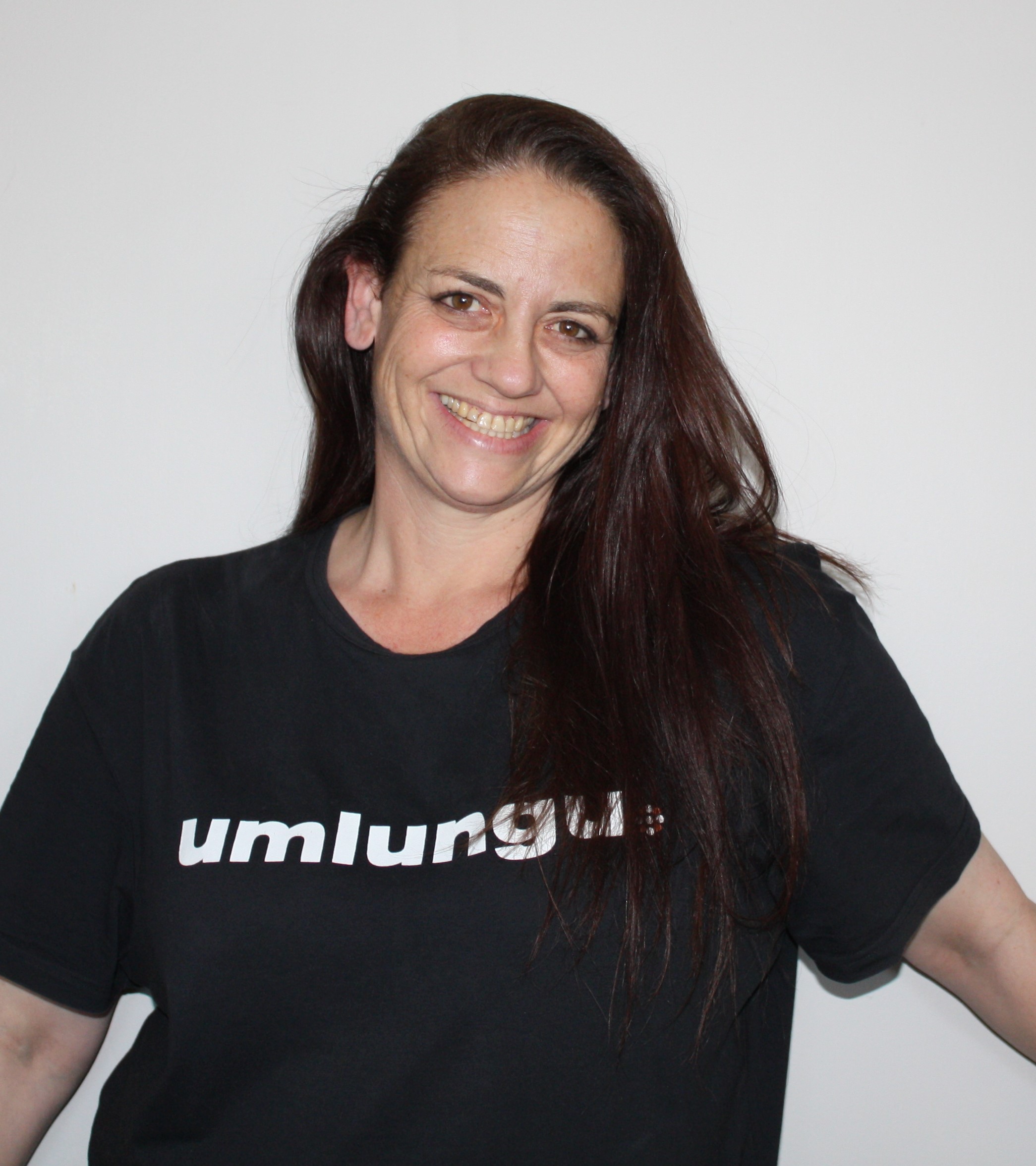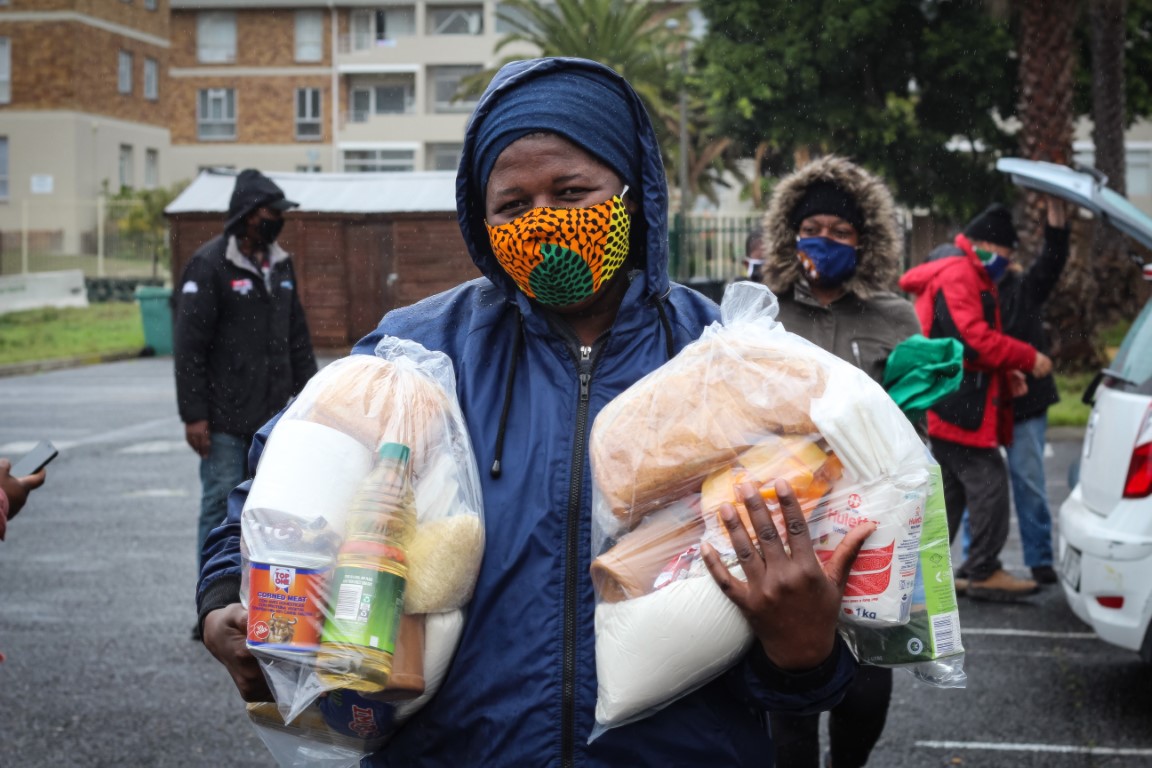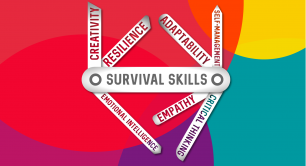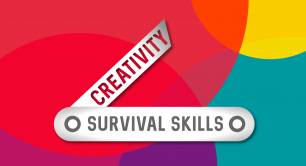Social Entrepreneurs’ Survival Skill no. 4: Self-management
Self-management helps you become the best “you”: hone this crucial skill and you'll earn trust, stay focused on your goals and look after yourself, too. Discover what self-management actually means and how you can develop it – plus eight steps towards self-discipline and an exercise to download – in our special series on the critical skills social entrepreneurs will need to flourish in the future.
Think of a great manager you’ve worked for or heard about – what were their qualities, how did they behave, what was it like working for them?
Now imagine having that kind of productive, positive and healthy relationship – or something even better – with yourself!
Through self-management, you could become the best “you” that you can be…
The best you overcomes obstacles, ignores distractions to get things done and moves forward.
The best you looks after yourself, takes time to understand others and earns their trust. The best you realises your potential – the fruit of self-management.
Fully developed, it enables us to control ourselves in all situations, and move forward consciously and steadily towards our goals.
- Interview: ‘Trust that other people may know better than you’ - Amanda Solomon
- Resource: Eight ways to develop self-discipline
- Download: Shifting your focus
Self-management enables us to control ourselves in all situations, and move steadily towards our goals
Many ways to manage
Self-management is an umbrella term that embraces self-mastery, self-discipline, self-regulation, professionalism and self-care.
Perhaps the best way to think about self-mastery is to consider someone who hasn’t got it. They're probably impulsive. They might yell at colleagues. They're unpredictable and seen as untrustworthy. Self-mastery means managing your emotions, impulses and actions. It means you know your purpose, and have the self-discipline needed to do things in a deliberate, focused and honourable way.
Four areas of your life to develop self-mastery:
- Goals – Self-mastery starts with a vision of how you want your life to be. It’s vital to set goals, and to get into the habit of moving towards them every day.
- Attitude and emotion – Don't let your emotions control you, ensure you control them. Focus on something positive every day. Be grateful for things. Resist the temptation to blame yourself when things go wrong.
- Determination – Ever set a goal and not followed it through because of a lack of perseverance or self-control? It's universal. Determination often comes in short bursts and is often strongest when we first embark on change. Harness your initial burst.
- Focus – How much time do you waste during your work day? What could you accomplish if you fully used the hours available? Start by working on your concentration. Focus on one task at a time, and slowly increase your level of focus.
Self-discipline pushes us to deliver on our best intentions, even when we don't feel like it. With it, we can trade short-term pleasure for long-term gain. It’s an essential quality, and a key differentiator between people who reach their goals in life and those who don't.
For example, research has shown an adolescent’s level of self-discipline is a more accurate predictor of success than measuring their IQ.
Self-regulation is the ability to keep disruptive emotions and impulses in check, and to think before acting. It's one of the five elements of emotional intelligence (knowing your emotions; managing your emotions/self-regulation; motivating yourself; recognising and understanding other people's emotions and managing relationships).
Self-regulated people can calm themselves down when they're angry, cheer themselves up when they're down. They’re flexible and can adapt to work with anyone.
We can all control how we react to situations. Build on your skills by leading with integrity, being open to change, practising self-discipline and believing in yourself. Keep calm under pressure by identifying your stress triggers and reframing negative thoughts. Always consider the consequences of your actions.
Self-care is consciously looking after yourself, by preserving and improving your mental and physical wellbeing. Without self-care, your self-discipline, self-mastery and professionalism will become an unsustainable grinding pressure – and your self-regulation and general wellbeing will go out of the window!
Persistent self-imposed obstacles to self-care include feeling unnecessarily guilty (don’t!), worrying what others will say, putting it off, learned behaviour, and feeling unimportant or undeserving. Remember, it’s not selfish or a luxury to look after yourself, too.
‘Trust that other people may know better than you’ - Amanda Solomon
 Amanda Solomon is the founder of H18 Foundation, a social enterprise in Cape Town which upskills and empowers local women by training them to make and sell environmentally sustainable craft products.
Amanda Solomon is the founder of H18 Foundation, a social enterprise in Cape Town which upskills and empowers local women by training them to make and sell environmentally sustainable craft products.
In 2021, Amanda took part in Social Enterprise Connect, the first online community of practice platform for social entrepreneurs across South Africa, offering collaboration and networking opportunities, practical tools and resources, and access to an exclusive funders’ database.
Below, she reconnects with Social Enterprise Academy Facilitator, Khwezi Fudu, to discuss self-management.
Khwezi Fudu: When Covid-19 hit and mobility was highly limited in the country, that obviously impacted your ability to produce. How did you navigate that and what in yourself had to change? What did you have to draw on personally to help you navigate those beginning stages of Covid-19?
Amanda Solomon: ‘We had closed the coffee shop and moved out of the business unit into a house at that point. We went into lockdown on 27 March and I realised that we couldn’t just sit around as H18 Foundation would never survive. So I contacted one of my friends and she sent me patterns and instructions. We already had some sewing machines and decided to start to making face masks. We also started a food parcel programme – after five months, we were providing food parcels to 95 families every week.
I was contacted by Changemakers hub [a platform that markets social enterprises and charities] to submit our products for an opportunity to export to the US via a group called Mana Boxes, who wanted to help women-owned enterprises in South Africa survive Covid-19. We developed two new products using 100% raw cotton string, we crotcheted up a handbag with a leather handle and a shweshwe [a traditional fabric] lining and a sunhat. Our first order was for 1,000 hats and 1,000 handbags, to be delivered in eight weeks!
We asked everyone on the food parcel programme who could sew, who could crochet – and in the end we had 52 women (including myself, an assistant and my mum) in a crocheting team, a sewing team and a leatherwork team. Everyone was earning, socially distancing and making our products.
We moved again in January [2021] to a closed-down preschool. Since the beginning of H18 Foundation, the women had always brought their children to work and they played, safe and supervised, but not getting an education. So I opened a preschool on the premises, called ‘Mana’ preschool because the Mana Boxes team have helped us financially. The children have been going to preschool since February this year and the growth and development of the children is unbelievable.’

Above: H18 Foundation provided food parcels to 95 families a week during the height of the Covid-19 crisis (credit: H18 Foundation)
KF: You were talking about the self-management qualities that you had to look for in yourself and your team, but is there something about your own drive and your ability to manage your thoughts and beliefs and reactions to situations?
AS: ‘I think what I found out about myself is you are as strong as you have to be at any time in your life, and no matter how hard the challenge, if you believe in the results you’re targeting you can achieve anything.
What I learnt, dealing with so many people and especially during Covid-19, is that I had to be adaptable, I had to believe in myself and I had to learn to focus.
Covid-19 has made me change from organically running things to being someone who has to strategically focus and get to that goal to make things work. So there was a lot of adaptability and I had to believe I could do it.
During Covid, I learnt that I had to believe in myself and I had to learn to focus
I learnt a lot about my team during this time – how capable, driven and hard-working my production managers are, and how they believe in our goals and H18’s mandate to empower people. Without them I don’t know where I’d be.
So there was a lot of believing in ourselves, working together, holding each other up and being totally open and raw and honest and not pretending we were ok when we weren’t. Actually leaning on each other during such a stressful, hard-working time.’
KF: Self-discipline pushes us to deliver on our best intentions, even when we don't feel like it. How did you stay focused when setting up H18 Foundation?
AS: ‘I have an uncanny ability to stay focused when there is a lot of noise and activity around me. I also have to switch from task to task throughout my working day, which means switching focus regularly. I am outcomes driven, and when I have a goal, whether it be completing a document, or creating a preschool, I like to work to the goal and achieve positive outcomes. I believe this is what keeps me focused.’
KF: Self-care is consciously looking after yourself, by preserving and improving your mental and physical wellbeing. How do you practise self-care?
AS: ‘I haven’t been very good at self-care since Covid-19 started, and I only became aware of that when I found I was getting sick very regularly. My self-care is time out to myself, doing things that I enjoy.
It involves some quiet time to relax. I am lucky in that I do enjoy being alone, and as my day-to-day is very noisy and busy, the silence of being alone, doing a puzzle, or playing a game on my phone, or watching a TV show that only I enjoy, this is my rejuvenating and recharge time.’
Say ‘I am so stuck’ – don’t be afraid to ask
KF: Can you suggest some advice for any social entrepreneur to navigate a time of uncertainty?
AS: ‘Through this time I have leaned on my network of people. You have to trust that people will be there for you, not just your loved ones, but someone outside of your immediate environment, too. Say ‘I am so stuck’ – don’t be afraid to ask for anything. You have to ask and you have to be open to receive and know that you have limitations.
So one of the biggest things is networking and making friends, and not thinking you’re better than everyone. Trust that other people may know better than you, and you can ask them and they can advise you.
I learn something every day – I learn from my beneficiaries, I learn from my staff – you can never stop learning, you can never know enough. There is always something you can learn from people and I think being open to that is so important.’
Eight ways to develop self-discipline
1. Choose a goal
Choose one goal to focus on. For instance, exercising every evening, or reading one leadership book a week to enhance your skills. Or you could even practice self-discipline on very small goals – such as focusing on a piece of work for an hour without checking your messages or avoiding unhealthy food for a day.
Starting small is the best way to start developing self-discipline. Make sure your goal is SMART – Specific, Measurable, Attainable, Relevant, and Time-bound – and break the goal down into smaller sub-goals where you can.
2. Find your motivation
Once you've chosen a goal, list the reasons why you want to achieve it. Try to express these reasons in a positive way. So, instead of saying "I want to exercise three times a week to lose weight,” you might say "I want to exercise so that I have the energy to play with my kids and work successfully”.
When you list the reasons why you want to achieve something, you'll find it much easier to get the job done.
3. Identify obstacles
Now identify the obstacles you'll likely face when working toward your goal and devise a strategy for overcoming each one.
Imagine your goal is to spend, say, an hour on focused learning a week to enhance your skills. But even when you find material you like, it's hard to find time to read it. And you get distracted by messages coming in while you're reading.
So, try keeping a list of recommended reading to hand – including inspirational blogs, engaging podcasts or videos, short courses on LinkedIn or Mind Tools – so you always have something worthwhile to do to work towards your learning goal.
Then find more time in your day to focus on reading. Maybe in your lunch hour, or while you're waiting to pick your kids up from school. Make sure to turn your notifications off when you want to focus and block out time in your calendar, so people know not to disturb you. And so that you don’t book meetings yourself!
Often our self-discipline crumbles because we haven't identified the obstacles to achieving our goals and have no strategies to overcome them. This shakes our resolve. Don't skip this step!
4. Replace old habits
When we're developing self-discipline, we're often trying to break a bad habit. However, if that habit is tied into a certain time of day or routine, breaking it can leave a hole. If we don't replace that habit, then its absence becomes even more noticeable.
Say you're trying to stop yourself shopping online when you take a break at work. So instead of online shopping, you could do some stretches in your office, get a coffee or take a quick walk outside. These behaviours will help support your goal and strengthen your self-discipline – instead of leaving a tempting gap, ready to be filled with something unhelpful.
5. Monitor your progress
As you work on your self-discipline, pay attention to how you're feeling as it develops and strengthens. You might feel free, happy, proud and energised.
Also, think about keeping a journal to write down your self-discipline goals and to track your progress. This reinforces the positive changes you're making and gives you a record you can look back on to see the progress you’ve made.
6. Save yourself from distractions
The best way to do this is to make it harder to engage in the activity you're trying to avoid. For instance, if you need self-discipline to focus on work instead of looking at social media, then use an app or your device’s built-in settings to temporarily mute notifications or block sites so that you can’t access them at work.
7. Salute yourself
It's important to acknowledge your success and steps towards your goal. Celebrating your accomplishments will keep things fun and strengthen your resolve to keep going.
8. Fight the fear of failure
Don't let a fear of failure or an occasional setback discourage you. All of us experience setbacks and failures – it's part of life! Acknowledge that you slipped up, learn the lesson, take it to heart and move on.
See setbacks as an opportunity to re-evaluate your goal, refocus and get support with the next steps.
|
More tools and resources to develop your self-management
|
Coming soon: how to develop emotional intelligence, empathy and critical thinking. Catch up on more survival skills for social entrepreneurs.



